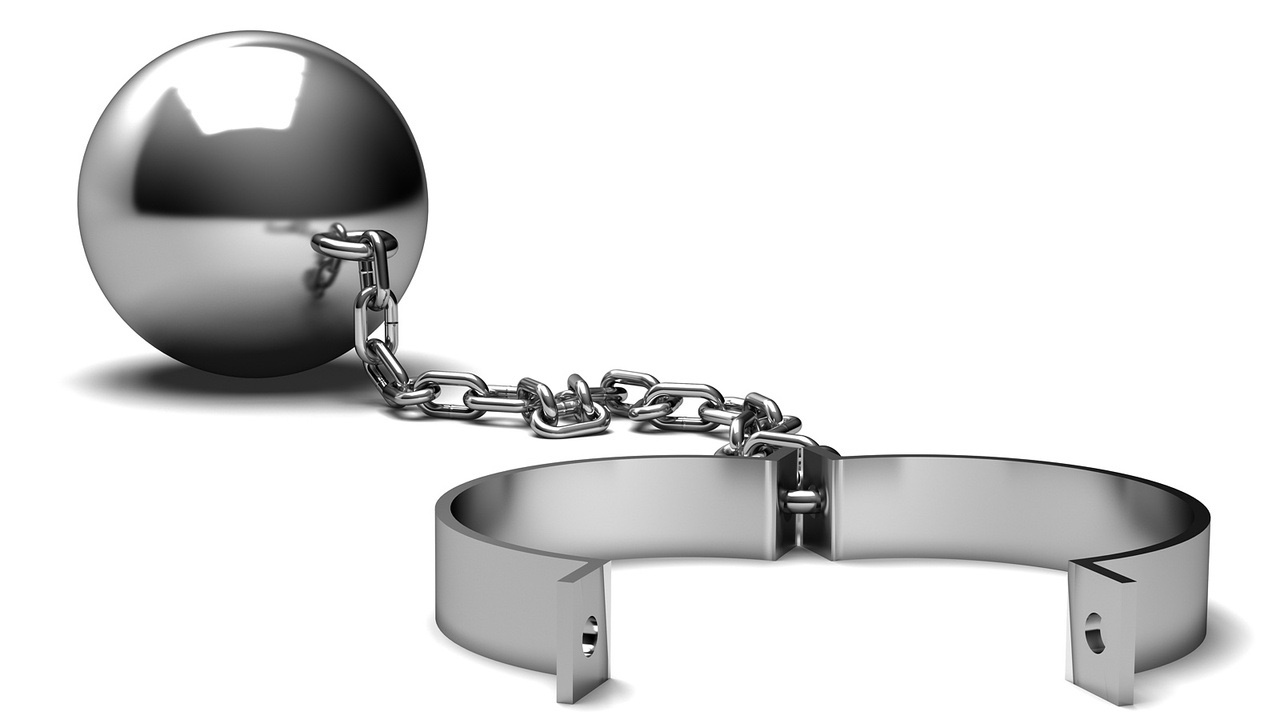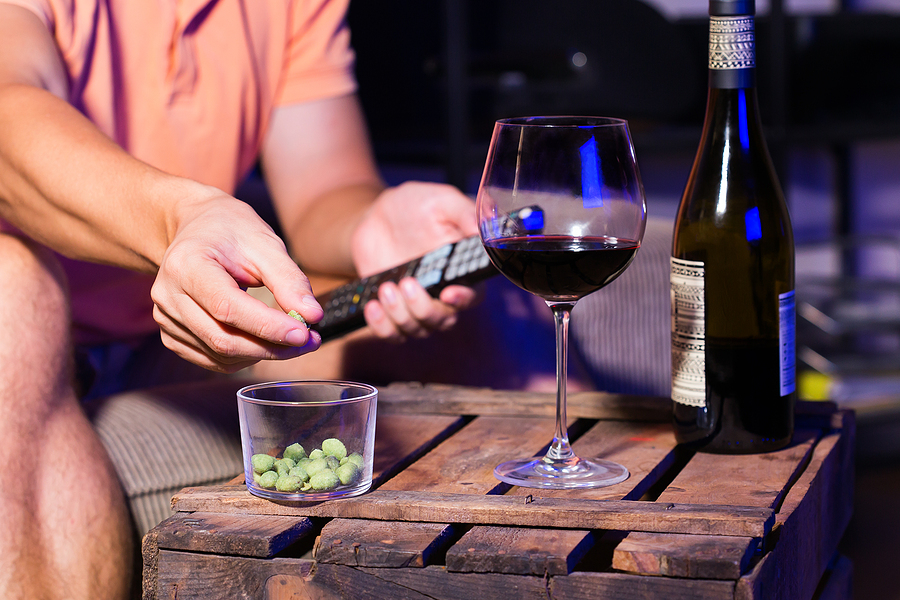
How To Break Your Toughest Habits
Nov 01, 2021Are some of your habits getting in the way of the healthy lifestyle changes you want to make?
Have you found breaking a habit really challenging because it seems to have a hold on you?
If I had a massage every time I talk to clients who want to make changes in their lives but they feel they’ve trapped themselves in a challenging habit to break...
Ahhhh that would be bliss... but I’d never get anything done!
The truth is we all have habits, for pretty much everything we do actually, because a habit is just a sequence of actions, thoughts or feelings that we ‘do’, often automatically and unconsciously, on a regular basis to get us a particular result.
Habits can fall into three categories; positive, negative and neutral.
Positive, resourceful, sustainable, healthy and nurturing habits are things that are good for us, and good for others. For example, brushing our teeth, giving our loved ones hugs when we see them or telling them we love them, showering each day, being active on a daily basis in the fresh air, drinking water at regular intervals throughout the day, getting to bed before 10pm, telling ourselves something loving every morning and so on...
Neutral habits are behaviours that are part of our life that don't have any positive or negative effect on our quality of life and they don't move us forwards towards anything, or hold us back from achieving anything e.g. waking up in the morning, twirling our pen with our fingers while we're thinking, or looking for four-leaf clovers when we're walking through grass.
The not so positive habits are the ones that fit under the heading of ‘self-sabotage’, or ‘unhealthy’ or ‘unresourceful’ or ‘unsavoury’! Habits (regularly repeated behaviours) and addictions (compulsions to engage in specific activities) like nose-picking, nail biting, binge drinking, smoking, creating drama, comfort eating, drug taking, giving ourselves a hard time and criticising ourselves constantly and so on. These are the ones where at some point (or on a regular basis) we might say to ourselves ‘I wish I could stop doing this...’.
Despite the pain our 'unhealthy' or 'negative' habits can cause us, they can still persist. So why is this? Why are some habits so hard to break, especially when we want to get rid of them or know they’re no good for us?
The common theory is that it takes 21 days to create or break a habit, if you do something different on a consistent basis (that’s if your enthusiasm lasts that long). James Clear, in his excellent book 'Atomic Habits', says that the likelihood of getting a habit to 'stick' is not actually a matter of time, but a matter of frequency, or repetition, and different habits take different numbers of repetition to become automatic, so there's no magic number.
At the same time, I've assisted my coaching clients to get rid of a habit for good in as little as one coaching session, and it’s not down to any secret Jedi mind trickery (well, not entirely).
It’s because breaking a habit isn't just about doing something differently, or stopping or starting a new behaviour. It's about that and also about understanding what’s driving the habit and getting courageously honest about its purpose.

Habits and addictions can be broken into 3 parts:
1. The Cue or Trigger
This is the starting point and it’s what sets the habit in motion. So, feeling anxious could be your cue to start biting your nails, or walking in the door when you arrive home from work might be your cue to pour yourself a large glass of wine or something stronger, or having something unexpected happen at home or work might be your personal trigger to find yourself something sweet and sugary to comfort yourself. Once you know your cue you can derail your habit by doing something else at that moment rather than moving to the next step...
2. The Sequence
This refers to the ‘parts’ of the habit – the various components, whether they’re visual (things you see externally or in your mind), auditory (things you hear or say to yourself), or kinesthetic (things you feel against your skin or the actual feelings and emotions you choose).
If you think about a habit you do and break it down, as if you had to teach someone else how to do it exactly the way that you do it, you’ll find that you ‘do’ it exactly the same way each time, following a specific sequence. For example, if a parent has a habit of losing their temper with their children at breakfast time, the cue might be one child saying he’s hungry, and the sequence might be the parent then telling themselves ‘great, here we go again, groundhog day’, followed by imagining a picture of the huge list of all the things they have to do today, followed by them having a feeling of exhaustion and depletion, followed by them telling their child to ‘stop whining at me'!
When you interrupt your sequence by doing something, anything different, you’ll lead yourself to new steps and a different result every time. I’ve had clients clap their hands, sing ‘Happy Birthday’, ping themselves with elastic bands and more! It doesn’t
matter what you do as long as it isn’t in the original habit sequence.
James Clear goes into fantastic detail about the habit loop - breaking this part into the 'Craving' (the emotional driver) and the 'Response' (the habitual behaviour) phases, which then give you plenty of opportunity to mess with the automatic loop and interrupt it - read Atomic Habits for more on this!
3. The Payoff or Reward
And this is the most important part, because this is the reason why, even if you know you don’t want to do your habit anymore, you’re struggling to stop doing it. The payoff is the reward, the feeling you get from doing your habit.
Humans are all about feelings...
Everything we think we want, material or otherwise, we want because of the feeling we believe that having that thing will give us – whether it’s connection, or clarity, or achievement, or success, or happiness, or love, or excitement, or abundance, or power or so on!
We don't crave cheese or chocolate - we crave the feeling that we think cheese or chocolate will give us, for example pleasure or comfort. We don't crave Netflix, we crave the feeling we think watching Netflix will give us for example connection or distraction or enjoyment.
So the payoff is the feeling we get from doing the habit – and the feeling is what we don’t want to give up on an unconscious level which keeps us hooked into doing the behaviour. For example, someone might want to give up drinking wine every night but it may be feeling like a struggle, and when he or she reflects closer they may realise that wine drinking in the evening is what makes up special 'couple time' with their partner, so they're not actually resisting giving up the wine. They're resisting giving up that time of connection because it's important to them.
When we can get clear on what that feeling is, whether it’s safety or comfort, or self-worth, or purpose, or whether it’s about keeping us safe from feeling something we don’t want to feel, like failure, or rejection, or loneliness, that’s when our seemingly-unbreakable habits, can become effortlessly easy to stop or change.
Why? Because all you have to do then is work out whether the payoff is worth the cost (mentally, physically, emotionally, spiritually, financially and so on) of doing the habit, and if not, you can then think of other ways to get that feeling you want via more resourceful and sustainable methods.
For example, the wine drinker can come up with other ways to enjoy a time of connection with their partner that don't involve alcohol.
Or, instead of snacking in the evening for comfort or distraction, I could take a shower, call or Zoom with a friend, or play some of my favourite music instead.
Easier said than done perhaps, because another factor that impacts how quickly we can change, start or break a habit is how motivated we are and how much we want to change it... Something to think about.

Assuming you have a habit that you do truly feel like you want to change, there are some really big differences that you can make by yourself, especially when you get creative about more empowering ways to get the payoff or reward.
It can also be really useful to get the help of a coach, especially one that's trained in strategies and processes that enable you to make changes at a deeper, unconscious level. For example, particular visualisation processes can be really powerful ways to change your previously automatic responses - here's an audio of a process called a 'Swish' that you can use to break a habit and 'install' a new and more resourceful behaviour in your mind instead.
Wishing you all the best with your habit breaking and building and if you need any extra coaching assistance then do get in touch because we would love to help - http://freshstartprogram.com.au/coaching

